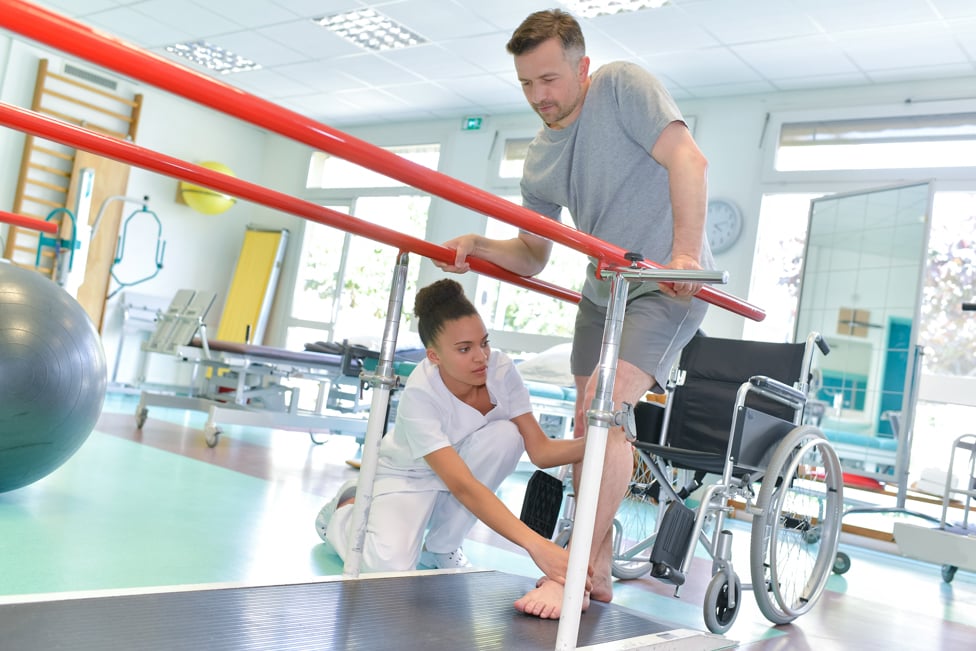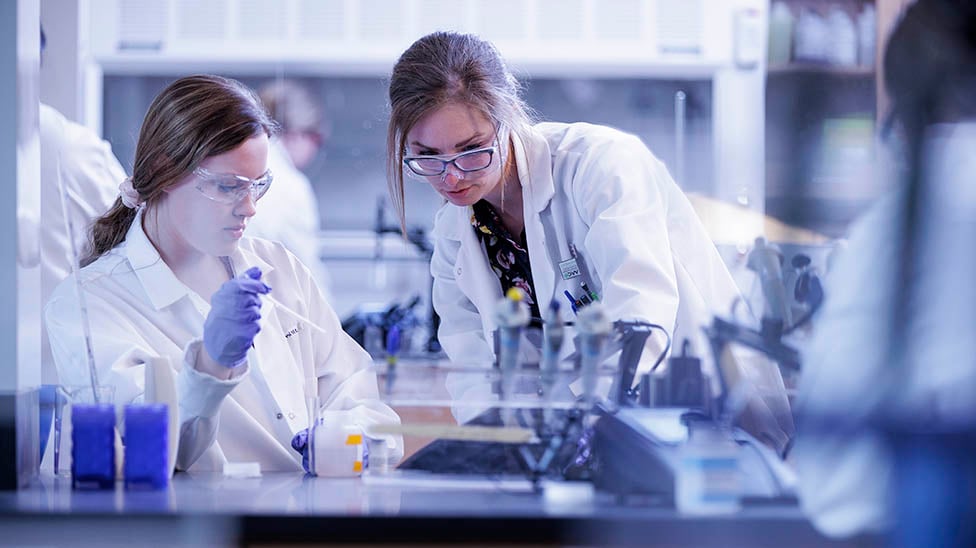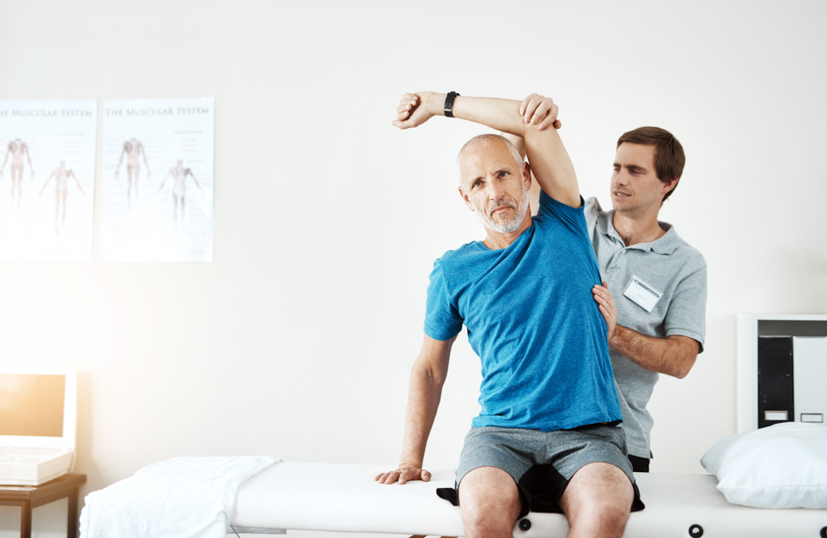
Pre-Professional Programs
Minnesota State Mankato offers pre-professional tracks that prepare students for advanced study in health and science-related fields—from medicine and dentistry to physical therapy, pharmacy, and veterinary care. Each track provides focused coursework, advising, and support to help you meet graduate program requirements and take the next step in your professional journey.
Careers in Pre-Professional Programs
- Occupational Therapist
- Athletic Trainer
- Healthcare Administrator
- Physical Therapist
Potential Salary
Median Salary $80,820
Pre-Professional Programs at MSU
Pre-Athletic Training
The Pre-Athletic Training emphasis is for students seeking to pursue a graduate degree in Athletic Training. Learn more about majors, policies, and courses to consider with a Pre-Athletic Training focus.
Pre-Chiropractic
Chiropractors treat disorders of the muscular, nervous, and skeletal systems using a natural, preventative approach—without drugs or surgery.
This pre-professional track prepares you for chiropractic school with recommended coursework and guidance. Most programs require at least 90 credits, though many students complete a bachelor’s degree before applying.
Admission requirements vary—review schools you're interested in and connect with your advisor to stay on track.
Dance Therapy Pre-Professional, Bachelor of Science
Dance/Movement Therapy (D/MT) prepares students to pursue advanced study at the graduate level. D/MTs work in a variety of public and private settings, and with a variety of populations, including persons with post-trauma brain injuries, eating disorders, children with autism, and the treatment and prevention of behavioral disorders.
Pre-Dentistry
Dentists diagnose and treat conditions affecting teeth, gums, and oral tissues. Their work includes preventative care, restorative procedures, corrective surgery, and prescribing medications.
This pre-professional track helps you prepare for dental school through recommended coursework and academic planning. Students often major in the sciences, but dental schools accept applicants from all academic backgrounds—as long as prerequisites are met.
Admission requirements vary—review individual dental school websites and connect with the advisor to stay informed.
Pre-Healthcare Administration
The Healthcare Administration Preparation emphasis in Applied Health Science is for students seeking to pursue a graduate degree in Healthcare Administration.
Pre-Medicine
Pre-med students follow a course of study designed to prepare for medical school and other health professional programs. This includes foundational coursework and meaningful experiences that strengthen your application.
Most medical schools require a completed bachelor’s degree and look for academically well-rounded applicants with strong records and life experiences that reflect a commitment to medicine. Students may choose any major, though science fields often align well with prerequisite courses.
Admission requirements vary—review individual medical school websites and connect with the advisor to stay informed.
Pre-Mortuary Science
This track is designed to meet the transfer requirements for the University of Minnesota’s Mortuary Science B.S. program. Students are encouraged to complete the Minnesota Transfer Curriculum or an Associate of Arts degree before enrolling. A total of 60 semester credits and a minimum 2.5 GPA are required for transfer consideration.
Mortuary Science programs are accredited by the American Board of Funeral Service Education. Admission requirements vary—use the ABFSE website to locate accredited programs in your area and consult with an advisor early in your academic journey.
Pre-Occupational Therapy
Learn more about majors to consider with your Pre-Occupational Therapy degree, policies and courses.
Pre-Optometry
Optometrists provide vision care through eye exams, corrective lenses, and treatment for conditions like nearsightedness and astigmatism. While they are not physicians, they can prescribe medications in some states. Ophthalmologists, by contrast, are medical doctors who offer full-spectrum eye care, including surgery and treatment for complex conditions.
This pre-professional track helps you prepare for optometry school with focused coursework and advising. Admission requirements vary—review individual program websites and connect with your advisor early to stay informed.
Pre-Osteopathic Medicine
Doctors of Osteopathy (DOs) are fully licensed physicians who practice a whole-person approach to care. In addition to standard medical training, they receive 300–500 hours of instruction in the musculoskeletal system, giving them a deeper understanding of how illness affects the entire body.
This pre-professional track prepares students for admission to colleges of osteopathic medicine, which typically require at least 90 credits and a completed bachelor’s degree. The MCAT is required for admission.
Admission requirements vary—review individual program websites and connect with your advisor to stay informed.
Pre-Pharmacy
Pharmacists dispense medications and advise patients and healthcare providers on dosage, interactions, and side effects. Most work in community or clinical settings, helping ensure safe and effective use of prescriptions.
This pre-professional track prepares students for pharmacy school through targeted coursework and advising. Most applicants complete a bachelor’s degree, often in Biomedical Sciences, Biochemistry, or Chemistry. The PCAT or PharmCAS application is required by many programs.
Admission requirements vary—review individual pharmacy school websites and connect with your advisor to stay informed.
Pre-Physical Therapy
Learn more about majors to consider with your Pre-Physical Therapy degree, policies and courses.
Pre-Podiatry
Podiatric medicine focuses on diagnosing and treating conditions of the foot, ankle, and lower leg. Doctors of Podiatric Medicine (DPMs) perform surgery, prescribe medications, treat injuries, and manage chronic conditions affecting mobility.
This pre-professional track prepares students for podiatric medical school, which typically requires at least 90 credits and a completed bachelor’s degree. The MCAT is required for admission.
Admission requirements vary—review individual program websites and connect with your advisor to stay informed.
Pre-Veterinary Medicine
Pre-veterinary students follow a course of study designed to prepare for veterinary school through foundational science coursework and hands-on experience. While not a degree program, this track supports your academic planning toward a career in animal health.
Most veterinary schools require a completed bachelor’s degree. Students often major in biology or chemistry to align with common prerequisites.
Admission requirements vary—review individual program websites and connect with your advisor to stay informed.
Pre-Athletic Training
The Pre-Athletic Training emphasis is for students seeking to pursue a graduate degree in Athletic Training. Learn more about majors, policies, and courses to consider with a Pre-Athletic Training focus.
Pre-Chiropractic
Chiropractors treat disorders of the muscular, nervous, and skeletal systems using a natural, preventative approach—without drugs or surgery.
This pre-professional track prepares you for chiropractic school with recommended coursework and guidance. Most programs require at least 90 credits, though many students complete a bachelor’s degree before applying.
Admission requirements vary—review schools you're interested in and connect with your advisor to stay on track.
Dance Therapy Pre-Professional, Bachelor of Science
Dance/Movement Therapy (D/MT) prepares students to pursue advanced study at the graduate level. D/MTs work in a variety of public and private settings, and with a variety of populations, including persons with post-trauma brain injuries, eating disorders, children with autism, and the treatment and prevention of behavioral disorders.
Pre-Dentistry
Dentists diagnose and treat conditions affecting teeth, gums, and oral tissues. Their work includes preventative care, restorative procedures, corrective surgery, and prescribing medications.
This pre-professional track helps you prepare for dental school through recommended coursework and academic planning. Students often major in the sciences, but dental schools accept applicants from all academic backgrounds—as long as prerequisites are met.
Admission requirements vary—review individual dental school websites and connect with the advisor to stay informed.
Pre-Healthcare Administration
The Healthcare Administration Preparation emphasis in Applied Health Science is for students seeking to pursue a graduate degree in Healthcare Administration.
Pre-Medicine
Pre-med students follow a course of study designed to prepare for medical school and other health professional programs. This includes foundational coursework and meaningful experiences that strengthen your application.
Most medical schools require a completed bachelor’s degree and look for academically well-rounded applicants with strong records and life experiences that reflect a commitment to medicine. Students may choose any major, though science fields often align well with prerequisite courses.
Admission requirements vary—review individual medical school websites and connect with the advisor to stay informed.
Pre-Mortuary Science
This track is designed to meet the transfer requirements for the University of Minnesota’s Mortuary Science B.S. program. Students are encouraged to complete the Minnesota Transfer Curriculum or an Associate of Arts degree before enrolling. A total of 60 semester credits and a minimum 2.5 GPA are required for transfer consideration.
Mortuary Science programs are accredited by the American Board of Funeral Service Education. Admission requirements vary—use the ABFSE website to locate accredited programs in your area and consult with an advisor early in your academic journey.
Pre-Occupational Therapy
Learn more about majors to consider with your Pre-Occupational Therapy degree, policies and courses.
Pre-Optometry
Optometrists provide vision care through eye exams, corrective lenses, and treatment for conditions like nearsightedness and astigmatism. While they are not physicians, they can prescribe medications in some states. Ophthalmologists, by contrast, are medical doctors who offer full-spectrum eye care, including surgery and treatment for complex conditions.
This pre-professional track helps you prepare for optometry school with focused coursework and advising. Admission requirements vary—review individual program websites and connect with your advisor early to stay informed.
Pre-Osteopathic Medicine
Doctors of Osteopathy (DOs) are fully licensed physicians who practice a whole-person approach to care. In addition to standard medical training, they receive 300–500 hours of instruction in the musculoskeletal system, giving them a deeper understanding of how illness affects the entire body.
This pre-professional track prepares students for admission to colleges of osteopathic medicine, which typically require at least 90 credits and a completed bachelor’s degree. The MCAT is required for admission.
Admission requirements vary—review individual program websites and connect with your advisor to stay informed.
Pre-Pharmacy
Pharmacists dispense medications and advise patients and healthcare providers on dosage, interactions, and side effects. Most work in community or clinical settings, helping ensure safe and effective use of prescriptions.
This pre-professional track prepares students for pharmacy school through targeted coursework and advising. Most applicants complete a bachelor’s degree, often in Biomedical Sciences, Biochemistry, or Chemistry. The PCAT or PharmCAS application is required by many programs.
Admission requirements vary—review individual pharmacy school websites and connect with your advisor to stay informed.
Pre-Physical Therapy
Learn more about majors to consider with your Pre-Physical Therapy degree, policies and courses.
Pre-Podiatry
Podiatric medicine focuses on diagnosing and treating conditions of the foot, ankle, and lower leg. Doctors of Podiatric Medicine (DPMs) perform surgery, prescribe medications, treat injuries, and manage chronic conditions affecting mobility.
This pre-professional track prepares students for podiatric medical school, which typically requires at least 90 credits and a completed bachelor’s degree. The MCAT is required for admission.
Admission requirements vary—review individual program websites and connect with your advisor to stay informed.
Pre-Veterinary Medicine
Pre-veterinary students follow a course of study designed to prepare for veterinary school through foundational science coursework and hands-on experience. While not a degree program, this track supports your academic planning toward a career in animal health.
Most veterinary schools require a completed bachelor’s degree. Students often major in biology or chemistry to align with common prerequisites.
Admission requirements vary—review individual program websites and connect with your advisor to stay informed.
Related Programs

Applied Health Science
From undergraduate degrees in alcohol and drug studies to public health or public health education, school health education, pre-occupational therapy, pre-athletic training, or pre-health administration, you'll graduate prepared to make an immediate impact in the health science field through one of these rewarding careers.

Athletic Training
The master's degree in athletic training prepares professionals to treat physically active patients as an integral part of an integrated health care team. As one of the oldest and most respected athletic training programs in the nation, students will graduate prepared to launch their career in this diverse field.

Biology
A critical understanding and awareness of cellular and molecular physiology is necessary for future leaders pursuing careers in healthcare, translational or essential scientific discovery.

Chemistry
Chemistry is the study of matter and the properties of their makeup. Our program exposes students to a variety of relevant topics in chemistry, such as inorganic, organic, physical, theoretical, materials, environmental, and industrial branches.

Exercise Science
The Exercise Science Program at Minnesota State Mankato is designed to provide a comprehensive, science-based, and human-centered education. With access to renowned educators and the cutting-edge facilities at the Holbrook Exercise Physiology Center, students are encouraged to pursue their big ideas and develop the skills necessary to succeed in the evolving and rewarding field of exercise science.
